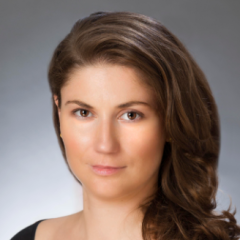Fiw Topics
- Inclusive Digital Economies
- Women's Financial Inclusion
Fiw Year
- 2024
Transcripts:
Summary + Key Insights
The discussion highlights proven solutions for closing the gender digital divide, emphasizing collaboration and addressing multiple barriers simultaneously.
- 🤔 Importance of Gender Norms: Understanding and addressing gender norms is critical for designing inclusive financial services. Solutions must consider societal expectations to ensure women’s participation.
- 🔄 Integrated Solutions: Tackling multiple barriers simultaneously—access, affordability, and skills—leads to more effective outcomes in closing the gender digital divide.
- 🔍 Role of Public Sector: Strong public sector leadership can create the foundational support needed for private sector innovations to flourish, driving systemic change.
- 👩🏫 Learning from Peers: Programs that facilitate peer learning among women, such as savings groups, can enhance digital skills and confidence effectively.
- 📈 Need for Scale: While many initiatives show promise, the challenge remains in scaling successful models to reach a broader audience and create lasting impact.
- 🌐 Technology as an Enabler: Leveraging technology, such as mobile payment systems, can provide women with greater financial access and opportunities in the digital economy.
- 💡 Continuous Research: Ongoing research and data collection are essential to adapt strategies and understand the evolving barriers and solutions for women’s digital engagement.
This session summary was AI-generated using NoteGPT.
A panel discussion will share the barriers to closing the gender digital divide in the digital economy and share examples of proven solutions to do so as well as relevant resources.
Persistent gender digital inequalities have profound significance on women’s livelihoods, economic resilience and outcomes. Left unaddressed, these inequalities will worsen, especially as digital technologies continue to evolve.
The development community has been working on closing the gender digital divide for over 15 years. Solutions to close the gender digital divide do exist and have been demonstrated to show promise or be capable of adaptation and replication for scale. And yet, despite donors and other stakeholders (e.g., firms, advocacy groups) often being generally aware of and interested in the underlying issues and these promising solutions, momentum and collective action on these solutions is held back for a variety of reasons.
Sharing them in a digestible way has been difficult, often resulting in inefficient use of funds and time. This panel will talk about what we know has worked, where to find relevant resources in order to more effectively and efficiently close the gender digital divide.
Session Speakers


